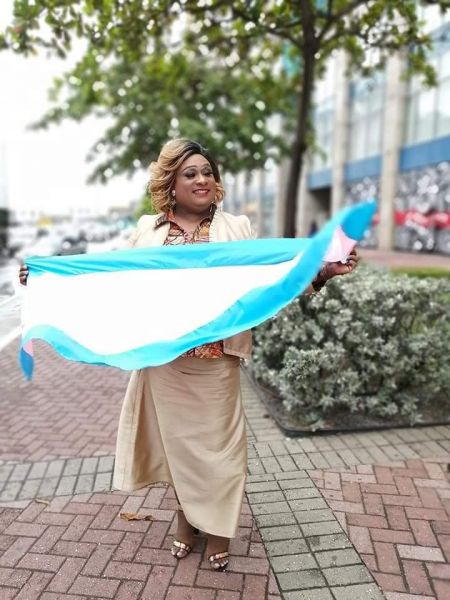On International Transgender Day of Visibility (March 31), the United Caribbean Trans Network (UCTRANS) launched the results of its survey Over-policed, Under-protected: The Experiences of Trans and Gender Diverse Communities in the Caribbean.
The study was conducted in 2020 with the support of OutRight Action International. It features feedback from transgender and other gender diverse respondents from 11 countries, garnered from surveys, individual interviews and focus group sessions.
Respondents identified the inability to change their gender marker, employment discrimination and discrimination in health services as the top challenges facing the community.
Except for Cuba, no Caribbean country allows transgender people to modify their gender on official identification.
"Gender identity recognition is important," said Alexus D'Marco, UCTRANS' Executive Director. "Every aspect of a trans person's life-access to education, employment, housing, and healthcare-depends on their ability to show a valid identity card or documentation that aligns with their gender identity and expression."
"It is beyond hormones," said Yaisah Val of Community Action for the Integration of Vulnerable Women in Haiti (Action Communautaire pour l'integration des Femmes Vulnerable en Haiti, or ACIFVH). "We need legal recognition and documents."
Forty-two percent of the study's respondents indicated that they were currently unemployed. According to the report, discrimination and the lack of workplace and social protections compound this issue.

"We had someone who was working with the government and told they had to go home. They said they didn't employ 'she', they employed 'he'," said Brandy Rodriguez of the Trinidad and Tobago Transgender Coalition, pictured above.
Around four of five respondents (78%) reported having experienced depression or anxiety. But just one-third (32%) of those who were receiving accessed health services said that it was trans-affirming or at least trans-competent.
HIV prevalence is disproportionately high among Caribbean transgender people-51% in Jamaica, 28% in the Dominican Republic, 8% in Guyana and 3% in Cuba. In 2019, 5% of new HIV infections in the Caribbean were among transgender people.
"The cycle of displacement contributes significantly to this HIV risk," Ms. D'Marco said. "If you are thrown out of the at an early age, experience gender-based violence and find yourself sleeping on beaches or the streets, you are more likely to have sex for a meal or a place to stay. Someone with education, access to housing and healthcare would be less likely to contract HIV."
Responding to HIV in the trans community calls for increased investments in psychosocial support. Ms. Rodriguez who is a peer navigator for transgender people accessing HIV treatment in Trinidad and Tobago says COVID-19 has increased the proportion of her clients who do not have money for transportation, food and housing. A Guyanese respondent said many of her friends committed suicide due to being unable to cope with their HIV status.
Trans advocacy in the region has burgeoned over the last decade with important strides made toward increasing public awareness and political will. Ms. D'Marco credits RedLacTrans, the regional transgender network for Latin America and the Caribbean, with helping to build advocacy capacity in the Caribbean. In many countries activists and community organizations have scaled up public awareness and political engagement efforts.
UNAIDS is supporting this movement in different ways. UNAIDS Jamaica helped TransWave develop the Trans and Gender Non-Conforming National Health Strategy, a five-year rights-based road map for advancing the community's health and well-being. UNAIDS Caribbean has collaborated with the Caribbean Vulnerable Communities Coalition, the Caribbean Broadcasting Union, the Caribbean Media Workers Association and the University of the West Indies Rights Action Project to conduct hands-on regional and national journalist trainings on how to cover transgender people and their issues responsibly. UNAIDS Caribbean has also supported community engagement and strategic communications around two successful strategic litigation cases challenging discriminatory laws that affect LGBT people, including a colonial-era crossdressing law in Guyana.
"As we increase our focus on achieving excellent HIV prevention, treatment and human rights outcomes for all key population groups, it is critical that we address the unique challenges facing the Caribbean transgender community," said Dr. James Guwani, UNAIDS Caribbean Director. "We need more strategic information, more investments in community-based services and comprehensive strategies to increase transgender people's access to education, employment, justice and healthcare."






